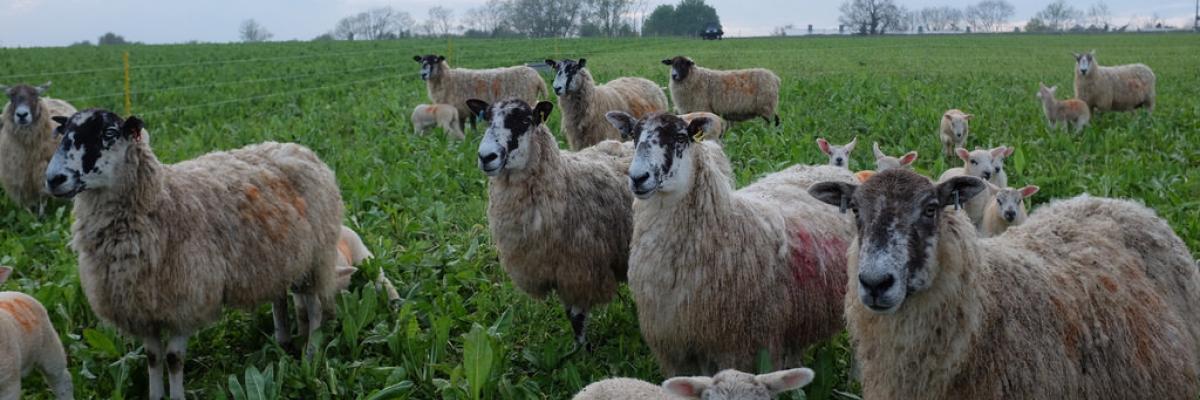
The Benefits of Sheep in Arable Rotations
A National Sheep Association publication
Download the PDF
Arable and cropping farmers recognise the need to improve soil structure and fertility, find alternative controls for problem weeds, and improve profitability. Well run sheep enterprises can generate returns whilst building soil fertility at the same time. Combining crops, grassland and livestock can also support increases in small mammals, pollinators and farmland birds. This guide by the National Sheep Association outlines the many benefits arable farmers can attain from incorporating sheep in to their rotation. With reference to research and farmer case studies, it outlines how sheep can fit in to arable rotations and the benefits they can bring to soil structure, soil fertility, weed control, biodiversity and cash flow. The guide stresses the importance of ensuring sheep are given proper care, and offers a number of business structures for arable farmers to choose from, depending on how involved with the livestock you want to be.
- For arable farmers wanting to improve soil structure and fertility and reduce weed burden without excessive chemical use, fodder crops grazed by livestock can help achieve this.
- Fields of pasture and fodder crops are less susceptible to soil erosion and compaction than fields with rows of crops.
- Sheep have minimal housing/machinery needs - temporary water and fencing allows them to be easily moved around a farm.
- Through their manure, sheep can contribute up to 35% of soil organic matter. This provides vital nutrients to crops and supports soil organisms that keep the soil healthy.
- Sheep can help to manage blackgrass and other weeds by grazing cereal crops, reducing the need for chemical controls.
- Sheep benefit the environment by grazing on mixed species swards that increase biodiversity and provide habitat and food for insects.
- Swards can include leguminous species that fix atmospheric nitrogen, increasing soil fertility and reducing the need for artificial fertilisers.
- Sheep reared in an arable rotation can benefit from reduced disease/parasite pressure and finish quickly.
- Adding sheep to an arable enterprise diversifies income and improves cash flow.
- It is vital that sheep introduced to arable farms are properly cared for and that farmers comply with the appropriate regulations.

